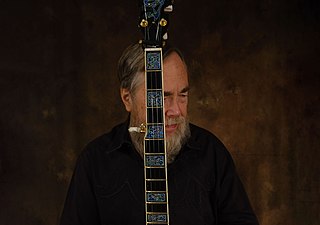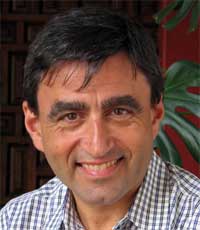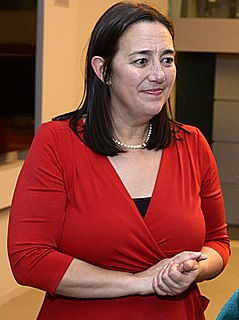A Quote by Tony Trischka
As a teacher with over thirty years of experience, I've found that students are hungry for material that goes beyond simply learning tune after tune. In fact, my students suggested a good portion of the material presented here. This lesson should be an indispensable aid to the aspiring bluegrass banjoist.
Related Quotes
If the students don't want to learn about evolution, they shouldn't be in the course. A biology course that teaches creationism is not a science course, it's a religion course. So the students demanding that creationism be given credence in that course are out of line and are denying the academic freedom of the professor. They are calling into question the scientific basis of the material that's being presented. And students are not in a position to do that.
There are students whose religious upbringing is going to make them feel uncomfortable in a class where certain kinds of secular ideas are presented. There are students whose ideas about history or sexuality are going to be similarly challenged to question, to affirm or to change those ideas. That doesn't mean they shouldn't be exposed to them; that's why they're at school. That's why they come to university: to be taught how to think well and critically about material that they're being presented with. But it's the teacher who is certified to teach them how to do that.
Learning should be engaging. Testing should not be the be all and end all. All students should have a broad curriculum that includes the arts and enrichment. Students should have opportunities to work in teams and engage in project-based learning. And student and family well-being should be front and center.
Differentiated Instruction is a teaching philosophy based on the premise that teachers should adapt instruction to student differences. Rather than marching students through the curriculum lockstep, teachers should modify their instruction to meet students' varying readiness levels, learning preferences, and interests. Therefore, the teacher proactively plans a variety of ways to 'get it' and express learning.
I was born 50 years after slavery, in 1913. I was allowed to read. My mother, who was a teacher, taught me when I was a very young child. The first school I attended was a small building that went from first to sixth grade. There was one teacher for all of the students. There could be anywhere from 50 to 60 students of all different ages.
No writer, I believe, should attempt a novel before he is thirty, and not then unless he has been hopelessly and helplessly involved in life. For the writer who goes out to find material for a novel, as a fishermen goes out to sea to fish, will certainly not write a good novel. Life has to be lived thoughtlessly, unconsciously, at full tilt and for no purpose except its own sake before it becomes, eventually, good material for a novel.






























